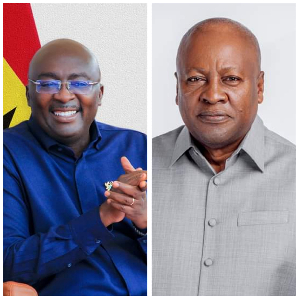
The youth vote in Ghana's 2024 elections holds immense potential, with many young people participating in the electoral process for the first time. Most of these new voters have benefited from the NPP's Free SHS policy, introduced in 2017, and their experiences are largely tied to the current administration. However, they are also facing the effects of a struggling economy, impacted by the COVID-19 pandemic and the Russian-Ukrainian war, and are likely to be influenced by the ongoing criticisms of the NPP.
For many of these young voters, their political memory is shaped by recent events. They’ve witnessed the benefits of Free SHS but have also seen economic hardship, high unemployment, and inflation. The NDC has been vocal in criticising the NPP for these issues, often without mentioning the global factors that have contributed to the current economic situation. Many young people, lacking the context of previous political administrations, may see the NPP as solely responsible for the economic downturn, even though much of it stems from external crises.
Another key issue shaping the youth vote is the galamsey problem. While illegal mining has been a longstanding issue, the younger generation may view it as a failure of the current government. The NDC has capitalised on this narrative, framing the NPP as ineffective in tackling galamsey, which has sparked protests and public outcry. However, what many of these voters may not know is that the galamsey problem has deep roots and didn’t begin with the current administration.
Interestingly, many young voters have little or no experience of the Mahama-led NDC years. They weren’t around during the days of dumsor, the cancellation of trainee allowances, and other challenges that marked that period. Without that historical perspective, they might be more susceptible to the NDC’s criticisms of the NPP, particularly on economic issues and environmental concerns.
The youth vote will be crucial in 2024, and whichever party can connect with these voters, explain the complexities of the current situation, and offer a clear path forward will likely sway them. These young voters hold the future of Ghana in their hands, and their choices could significantly shape the direction of the nation.
What's your mind? Share your thoughts with us